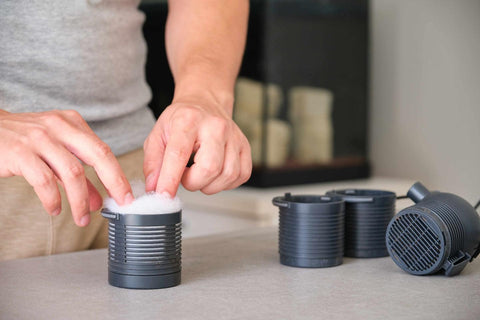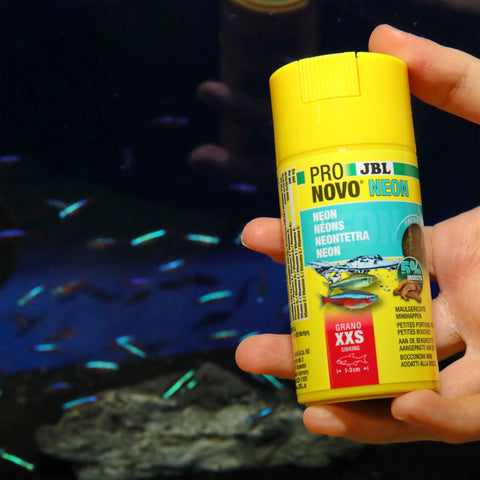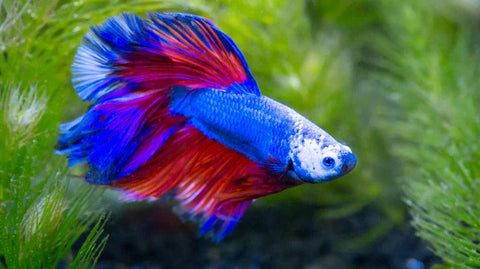Owning an aquarium is a fascinating and enriching experience. The variety of colors, shapes and movements of the underwater world is incredibly impressive. However, there are many aspects to consider when setting up an aquarium in order to create an optimal and healthy environment for the aquarium inhabitants. One of these aspects is the question of whether an aquarium needs a filter.
The function of a filter in an aquariumA filter in an aquarium has various important functions:
- Cleaning the water of pollutants and dirt particles
- Removal of excess food and excrement
- Oxygen supply for the fish and plants
- Biological breakdown of toxic ammonia and nitrite
The advantages of a filter in the aquarium
An aquarium filter offers several advantages:
- Improvement of water quality: Continuous filter operation cleans the water of pollutants and dirt particles, resulting in a healthy environment for the fish.
- Preventing algae growth: A filter removes excess nutrients from the water that could promote the growth of unwanted algae.
- Stabilizing the biological balance: The filter supports the breakdown of harmful ammonia and nitrite by beneficial bacteria, resulting in a stable and healthy ecosystem in the aquarium.
- Oxygen supply: A well-functioning filter promotes the supply of oxygen in the water, which is crucial for the health of fish and plants.
- Disease reduction: An effective filter can remove pathogens from the water, reducing the risk of infection in aquarium inhabitants.
- Clear visibility: A filter keeps the water clean and transparent so that you can clearly see the aquarium and its inhabitants
- Noise reduction: Some filter models are designed to work quietly and therefore reduce the noise level in the room.
Is a filter always necessary?
Whether a filter is necessary for an aquarium depends on various factors:
- Size of the aquarium: In small aquariums, a filter could have a greater impact as the water can become dirty more quickly.
- Population density: The more fish and other creatures live in the aquarium, the higher the water pollution. In such cases, a filter is essential.
- Aquarium plants: Plants can act as a natural filter by absorbing excess nutrients. If the aquarium is heavily planted, a filter may not be absolutely necessary.
- Water changes: Regular water changes can help maintain water quality. In some cases, a filter may not be as important if regular water changes are carried out.
- Fish sensitivity: Some fish species have specific water quality requirements and could benefit from a filter, while other species may be less sensitive.
Which filter is the right one?
There are different types of aquarium filters, including:
- Internal filter: This type of filter is placed in the aquarium and is easy to install and maintain. It is well suited for smaller aquariums.
- External filter: An external filter is placed outside the aquarium and provides powerful filtration. It is well suited to larger aquariums.
- Undergravel filter: An undergravel filter is placed under the gravel or substrate in the aquarium and promotes the biodegradation of pollutants.
- Suspended filter: A suspended filter is attached to the edge of the aquarium and provides effective filtration and oxygenation.
- Biological filter: A biological filter uses beneficial bacteria to help break down pollutants. It can be used in conjunction with other filter types.
The importance of filter maintenance
A filter requires regular maintenance to ensure its optimum performance:
- Cleaning the filter media: The filter media, such as sponges or ceramic rings, should be cleaned or replaced regularly to maintain filter efficiency.
- Check the pump performance: The pump performance should be checked regularly to ensure that the filter is working properly.
- Removal of dirt particles: Deposits and dirt particles in the filter should be removed regularly to prevent blockages.
- Water changes: Regular water changes are important to improve the water quality and reduce the load on the filter.
The most important points summarized once again
In most cases, a filter in the aquarium is essential to ensure optimum water quality and a healthy environment for the aquarium inhabitants. By removing pollutants, supplying oxygen and biodegrading toxins, the filter plays a crucial role in maintaining a balanced ecosystem in the aquarium. However, it is important to consider the individual needs of the aquarium and, if necessary, consult with experts to find the best solution.
A well-chosen filter can help keep your aquarium healthy and beautiful so that you can enjoy your fascinating underwater inhabitants for a long time.




Comments (0)
There are no comments for this article. Be the first one to leave a message!